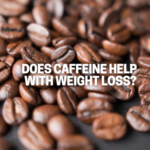Intermittent fasting has emerged as an powerful approach, for shedding those pounds. It involves a cycle of fasting and eating which has garnered attention for its effectiveness in promoting weight loss boosting metabolic health and even potentially increasing lifespan.
So what exactly is intermittent fasting? It’s a method of eating that alternates between periods of fasting and periods of eating. There are ways to approach fasting but the most common methods include the 16/8 method, where you fast for 16 hours and restrict your eating window to 8 hours each day; the 5;2 diet, where you eat normally for five days while restricting calorie intake to just 500 600 calories on the remaining two days; and alternate day fasting, where you fast every other day with some flexibility for limited calorie intake on those fasting days.
The underlying principle behind fasting is its ability to reduce calorie intake while also influencing hormone levels in ways that support weight loss. Moreover it can enhance insulin sensitivity promote burning processes in the body and alleviate inflammation.
When it comes specifically to weight loss efforts among individuals aged 50 or above intermittent fasting can prove effective, as a tool.
Here’s how it works
Calorie Restriction; By controlling when you eat or fasting on days intermittent fasting naturally reduces the number of calories you consume resulting in weight loss. Increased Fat Burning; During fasting periods your body switches to burning stored fat for energy, which can help decrease your body percentage.
Improved Insulin Sensitivity: Intermittent fasting can enhance your body’s sensitivity, to insulin making it easier for your body to utilize stored fat for energy and reducing the risk of insulin resistance and type 2 diabetes. Reduced Inflammation; Studies have shown that intermittent fasting can reduce inflammation in the body, which is associated with diseases and obesity.
Preservation of Muscle Mass: Unlike traditional diets that restrict calories intermittent fasting helps preserve muscle mass while promoting fat loss. This is important for maintaining strength and overall health.
Seek Advice from a Healthcare Professional
Before embarking on any fasting or weight loss program it is crucial to seek advice from a healthcare professional especially if you are over 50 years old. They can assess your health status provide personalized recommendations tailored to your needs and ensure that fasting is safe for you.
Why Seek Advice from a Healthcare Professional?
Seeking advice from a healthcare professional is essential, for reasons
Individualized Approach: A healthcare professional has the expertise to evaluate your health requirements and create a fasting plan that’s suitable, for you considering factors such as your age, medical history and lifestyle.
Identification of Underlying Conditions: They can also identify any conditions that may impact your ability to fast safely such as diabetes, heart disease or gastrointestinal problems.
Monitoring Medications: If you are currently taking any medications a healthcare professional can ensure that fasting does not interfere with their effectiveness or pose any risks.
Addressing Nutritional Needs: As we grow older our nutritional needs tend to change. With the help of a healthcare professional you can ensure that you receive all the nutrients required for maintaining overall health while fasting.
Monitoring Progress: Regular check ins with a healthcare professional will allow them to monitor your progress make adjustments if necessary and offer support and guidance.
Staying Hydrated and Nourished
It is vital to prioritize hydration and nourishment during fasting periods in order to support your well being.
Here are some tips to help you maintain hydration:
Drink an amount of water throughout the day; aim for at least 8 10 glasses.
Incorporate teas or infused water into your routine, for variety and additional hydration.
To maintain hydration it’s best to avoid drinks and excessive caffeine. When it comes to nutrition while fasting it’s important to prioritize foods that’re rich, in nutrients during your eating windows.
Here are a few tips
1. Focus on consuming whole foods like fruits, vegetables, lean proteins, whole grains and healthy fats.
2. Stay away from processed and sugary foods as they can cause spikes in blood sugar levels and trigger cravings.
3. You may also consider incorporating supplements like multivitamins or omega 3 fatty acids to ensure you’re meeting your requirements.
It’s essential to listen to your body when practicing fasting for weight loss especially if you’re over 50 years old. Pay attention to how you feel and make adjustments to prioritize your well being.
Keep an eye out for the following signs that may indicate the need for adjustments, in your fasting approach, If you find yourself experiencing hunger or cravings feeling weak lightheaded or dizzy having difficulty concentrating or mental fog weight loss or gain or changes, in sleep patterns or mood it may be worth considering the following adjustments;
1. Shorten your fasting periods. Increase the time you allow yourself to eat during the day.
2. Modify your fasting methods by switching from day fasting to the 16/8 method for example.
3. It’s always an idea to consult with a healthcare professional who can provide guidance based on your specific needs and situation.
Additionally if you want to maximize weight loss and overall health benefits through fasting it’s important to combine it with exercise and a balanced diet. Here are some tips:
Exercise Tips
Make sure to include a mix of exercises strength training activities and flexibility exercises in your workout routine.
If you’re new to fitness or have issues consider starting with low impact exercises. Listen to your body during workouts and adjust the intensity and duration as needed.
Balanced Diet Tips
A balanced diet is essential, for providing your body with nutrients while supporting weight loss.
Here are some helpful suggestions
1. Make sure to include a range of fruits, vegetables, whole grains, lean proteins and healthy fats, in your meals.
2. Avoid calorie restriction or overeating during your designated eating periods.
3. Practice portion. Mindful eating to foster a relationship, with food.
By incorporating fasting alongside exercise and a balanced diet you can boost weight loss enhance fitness and increase your chances of long term success.






















Add comment